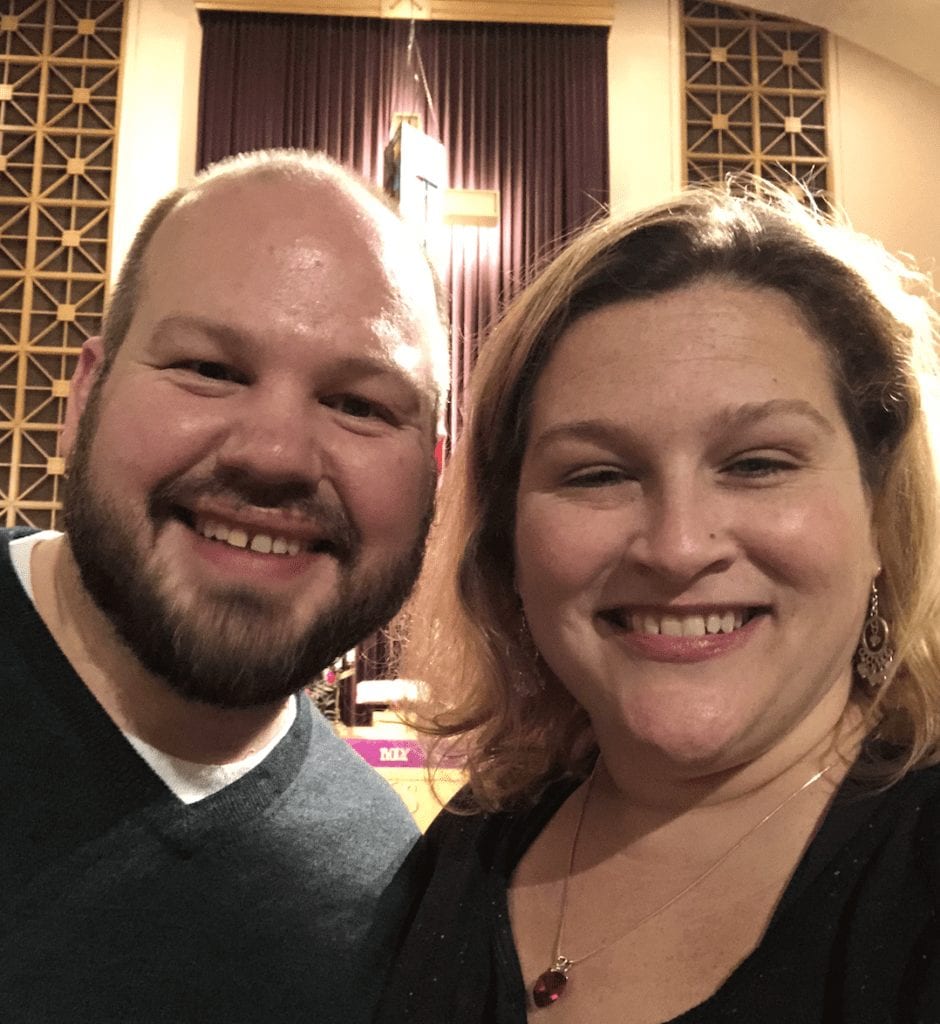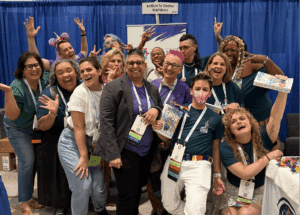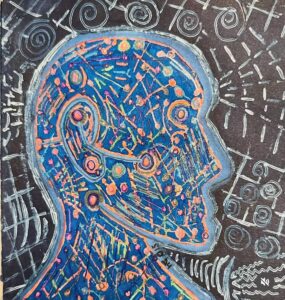Last year, I had a phone meeting with a local pastor to provide someone in my network a recommendation. The lead pastor of a young, hip, non-denominational storefront church that draws many from our local recovery community, he was very friendly and expressed an interest in the work that I do. Towards the end of the conversation, I brought up a question I had for him, “What is your church’s position on LGBT issues?”
He started into the mental tap dancing that I have heard from pastoral figures, and sadly many clinicians, for much of my life.
“Well, we are 100% welcoming of everyone, no questions asked. We never turn away anyone, since we’re all God’s children.”
“So can a gay person be their authentic selves and still worship openly in your church?,” I continued.
“Of course they are always welcome at worship. We even had a transgender join the church last week who asked some of these same questions,” he answered.
And then the true colors started to show. He said that while they are welcoming, many eventually do see their lifestyle as sinful and that people who are transgender or in gay relationships cannot hold leadership positions.
“So you are not LGBT affirming?,” I asked.
He did more tap dancing about not wanting to turn God’s children away, and I then reflected, in summary, what I was hearing, “So you are accepting and even welcoming of LGBT folks coming to your church, and you do not affirm that being who they are is okay.”
“That’s a fair summary,” he conceded.
There is a difference between being accepting and affirming. “Accepting” is a loaded word for those of us in the LGBT+ community because it is often laced with the subtext of, “We love you yet we don’t love your sin.” If I had a dollar for every time a queer person I know was served up some variation of the love the sinner, hate the sin trope, I could retire comfortably right now. That’s what one of my own family members told me when I came out to her.
“Jamie, I still love you,” she said, “Who am I to judge your sin when I am a sinner too.”
Ouch.
Yet I don’t think this hurt as much as when I heard another clinician that I know use this same logic to explain how she, as a devout Evangelical Christian, is able to treat gay clients.
“I used to struggle with it,” she said, “But then I reasoned that I am a sinner too so who am I to judge them for their sin?”
I challenged her hard on that one. With that logic, she believes that who we are as people is sinful. How we chose to express our love to others is sinful. Rationalizing that you are okay with us because you also commit sins like cheating on your taxes or bearing false witness against your neighbor creates a dangerous false equivalency that is quite literally killing members of the LGBTQ+ community. And worse, if many of you are challenged on it, you have been known to accuse us of being religious bigots. Yet I ask you—what part of practicing your faith, truly living your faith, necessitates that you discriminate against queer people? This discrimination can be overt, yet I most commonly observe it happening more subtly through microaggressions and judgments that you may not say aloud, but that we can pick up on through your vibe, your tone, and often your affect.
If you are a clinician who believes, due to your religious convictions, that being gay, lesbian, bisexual, transgender, questioning, queer, or any of the other identities that we now welcome into the rainbow family is inherently sinful, or that expressing our desires to be who we are and love who we love in the world, I invite you to do some serious work. The reason I make the distinction is that some religions believe that attraction and desires are normal and shouldn’t be judged, yet crossing the line into acting on them becomes sinful. Kissing someone you like of the same gender or having consensual sex is sinful. Marrying the person you love and choosing to raise a family with them is sinful. If this is what you really believe and you are justifying that you are able to do good clinical work with LGBTQ+ clients, I challenge you to look deeper at your theology, for it may be impacting your clinical judgment.
There are a variety of theological commentaries and interpretations of what the word sin even means. For some people, it’s as simple as following the Ten Commandments. For others, there’s more detail involved as codified in other religious scriptures and texts. Even amongst devout people, theology assumes a great deal of contextual interpretation. I think of Catholicism alone—there are Fr. James Martin Catholics and Rick Santorum Catholics. There are Anne Lamott Catholics and Amy Coney Barrett Catholics. And from interacting with many people from other Christian denominations and other faith traditions, I’ve learned that the same phenomenon applies rather universally. I have Orthodox Jewish friends who still adhere to a very literal reading of the Torah and maintain it works for them and their mental health. I also have a soulful Israeli friend who describes that the kind of Jew she is in the world is so far removed from that legalism.
She offered, “I see the men who wrote the Torah as traumatized people who never got the healing they needed, so why would I take their words seriously?”
Her words resonated with me as someone who grew up in Christian denominations. I am a Catholic-Evangelical mutt. While my parents squabbled over theology almost every day in my house, something both of their belief systems seemed to have in common is that being gay is a sin. When I did a great deal of my own theological reading to bring peace to the inner war inside of me resulting from years of two Christian religions fighting for my soul and my allegiance, I recognized what a key role interpretation plays in all of it. There is a great teaching from writer Anaïs Nin often cited by therapists, “We don’t see the world as it is, we see it as we are.” My recovery journey and dealing with so many different personalities of so many different faith traditions has taught me that you can replace the world with God and you would have a true statement.
If you claim that your religious beliefs dictate your beliefs around LGBT+ folks, I guarantee you that there are other pastoral figures or theologians in your own faith tradition who see it differently. I ask you to look some of them up, notice what you have in common with them, and read their interpretations of scripture, which often take faulty translations of sacred texts to task. For instance, I often send Christian folks to Pastor Mark Sandlin’s piece Clobbering Biblical Gay Bashing for a complete unpacking of what you think scripture says about homosexuality and what scripture actually means. And this is assuming that you still desire to take the Christian Bible at face value. Other theologians have challenged the reality that even the decisions on what went into scripture were politically charged and because these decisions were made by flawed, traumatized members of the patriarchy in a different era, can never paint a complete picture of God’s will.
Who can?
While I hope that all people who proclaim to be people of faith will take this challenge seriously, it is imperative to embrace it if you are a clinician who works in a secular setting. And even if you do work in a faith-based setting with a state-issued license, I would argue that your duty as a clinician to offer ethical, unbiased care is the first priority. So many young, questioning youth are sent into faith-based counseling by their devout parents and you have a decision, as a clinician, if you are going to be a solider for the religion or an ethical clinician for your client. What I’m saying is not that controversial—check out the ethical codes of your professions if you have any questions at all about what your duties are.
In making this call to being affirming to LGBT+ clients, another point I’ve heard made by devout clinicians is that they just don’t make a big deal about sexuality.
“I’m here to do good clinical work, period,” I heard one clinician say, knowing full well her real beliefs about queer folks.
In the EMDR community, we use the line “stay out of the way,” to set the therapist’s ego aside and let the trauma work go wherever it will go. Several devoutly religious EMDR therapists will use this to justify how they are able to treat LGBT+ clients even though, deep down, they believe that being gay or trans or otherwise sexually diverse is wrong. I don’t think such clinicians have ever stopped to consider how their implicit bias may be seeping out in sessions, especially in the form of microaggressions.
For years, I experienced microaggressions from fellow clinicians at conferences before I was fully out in all areas of my life as bisexual. Knowing that I was married to a man at the time, many seemed to think they could get away with making snide comments about political correctness, the liberal agenda infiltrating counseling, bi people being “confused,” or transgender identity being a “fad” amongst young people. And every time I heard such comments, I questioned whether or not I should come out in a field that still seemed like a very hostile place.
If you cannot be affirming with your clients, I do acknowledge that much of this behavior may come from what you’ve been raised or taught to believe. I get it; I was there too. You may fight tooth-and-nail that you believe what you believe because of your religion. I spent years declaring as such. Yet upon further inspection, I realize that I was operating from what others taught me to believe based on their rather narrow interpretations, not from the fullness of what our faiths really are and truly mean. And it dawned on me that devout people can freely live their heteronormative lives and practice their believes accordingly, at least in the United States, without having to impose their views on another. And if imposing religious beliefs on another defines your faith, there is a serious problems and the lives of queer folks may be at stake. And if us living our lives freely is somehow a threat to your faith, how strong is your faith really, and on what is it actually based?
While you may believe from the bottom of your heart that your faith journey makes you a good clinician, I also challenge you to look at the wider context. Visit websites like the Human Rights Campaign (HRC) and The Trevor Project. Get an idea of just how much more pervasive suicidal ideation, suicide attempts and completed suicides are a factors in LGBT+ circles due to the poison of shame. For so many of us that shame was put there, either directly or indirectly, by the religiously devout. While that poison is insidious when delivered by society, a pastoral figure, or a clueless parent, I argue that it’s even worse when it’s injected by a clinician, especially a clinician who comes across as having your best interest at heart. Many of you who follow my work know that I lost one of my best friends to suicide in 2019, a gay man named Jason who struggled horrendously with being invalidated by his religious origins. He once shared with me that a counselor at a secular treatment center pulled him aside and asked him if he considered whether or not his struggles were because he was gay, and perhaps he ought to recommit to his faith more. That is unacceptable whether clinicians are conveying that hatred as directly as Jason experienced it in this context, or more subtly. And while Jason had the experience in the rest of his life to be met by other affirming clinicians, that one experience stuck with him, like so many others he received in the church.
If what I wrote in this piece in any way made you feel uncomfortable or unsettled, I encourage you to sit with that for a while. And then accept the invitation to use that for your own growth as a clinician. Consider that this discomfort is what queer people feel most days of their lives, especially when they come in contact so directly with oppressive systems or microaggressions. See if you can attune your discomfort to practicing a new kind of empathy. We only change as people and as a field when we are willing to get uncomfortable and this may be your vital first step.





11 Responses
So perfectly stated. Thank you so much!
This is poignantly eloquent. Your words speak for so many of us who have often thrived and suffered for being our honest and open selves. My hope is that your words touch people in a way that facilitates change.
Thank you Dr. Jamie for your courage to speak!
Thanks for the thoughts and for the links to more reading. I am a very unschooled Christian and when others start quoting the Bible to bash people I get a little frozen. Mostly I just have to throw up my hands and state that men (people) wrote the Bible, and since all people are flawed, so is the Bible. I look forward to reading the related to an exploration of what is actually written in the Bible. 🙂 Velma
Can’t thank you enough! Good references as well!! Read Mark’s article and it was so helpful. Keep speaking up!! I grew up Episcopalian and Evangelical Christian. But, these types of encouragements are helping me be more aware & accepting of other & their authentic selves!!
Thank you for all this – we need to share the words and continue to provide ways for the conversation to happen – So so many hurts.
This was an important part for me:
And even if you do work in a faith-based setting with a state-issued license, I would argue that your duty as a clinician to offer ethical, unbiased care is the first priority.
It is NECESSARY to provide unbiased care.
Thank you for boldly challenging not only counselors but all human beings to confront our sometimes overt and sometimes disguised prejudices. You are a powerful voice for justice and humanity, and I am grateful to you.
Thank you for naming the wounding that happens and keeps happening to so many. Thank you for your voice and your courage to be seen.
So with you on all of this and so glad it’s at the heart of the ICM Community! Part of why I gravitated towards trauma work as a focus of practice was my experience working with so many LGBTQ+ individuals who were traumatized by countless experiences of a culture of invalidation and hate in small town Augusta, Georgia! I have had so many trans individuals especially tell me horror stories of their experiences with therapists and more often than not, I’m the only therapist they have been able to find who has been safe/ LGBTQ+ affirming and has the ability to write letters for HRT, Top Surgery, etc, which is required to access any of these services here unfortunately (in my opinion).
But yeah Many thanks for taking the time to converse this, I feel strongly about it and in fact like learning more on this topic. If probable, as you gain expertise, would you mind updating your weblog with more information? It is extremely helpful for me.
As a Newbie, I am always exploring online for articles that can aid me. Thank you
http://www.socjologia.xmc.pl
Thanks so much for this insightful piece, Dr. Marich. I’d like to add two more resources: “The Widening of God’s Mercy: Sexuality Within the Biblical Story” by Christopher B. Hays and Richard B. Hays, a father and son team; and “The Bible Says So: What We Get Right (and Wrong) About Scripture’s Most Controversial Issues,” by Dan McClellan. Dan also has wonderful videos on TikTok, YouTube, and FB.